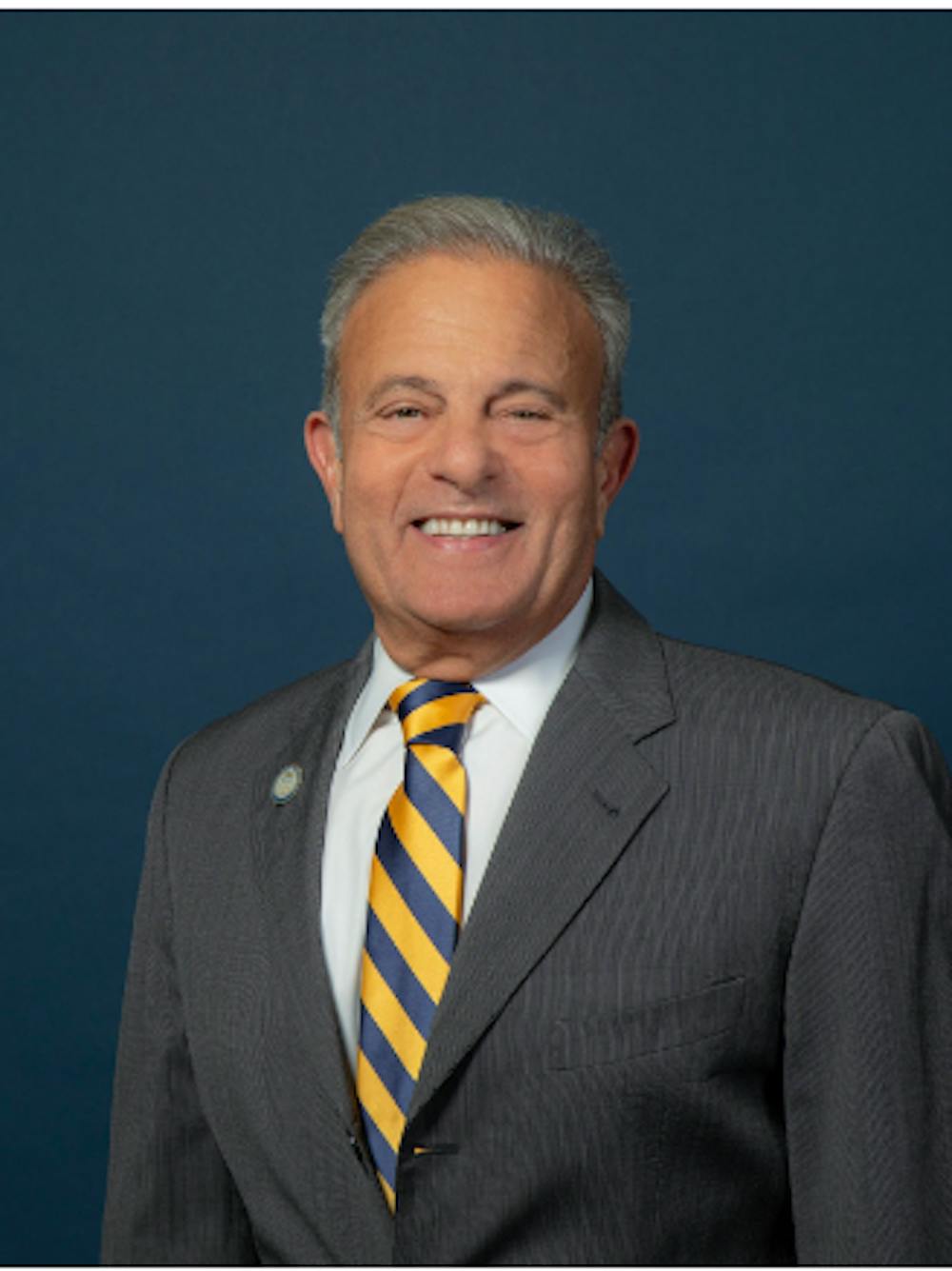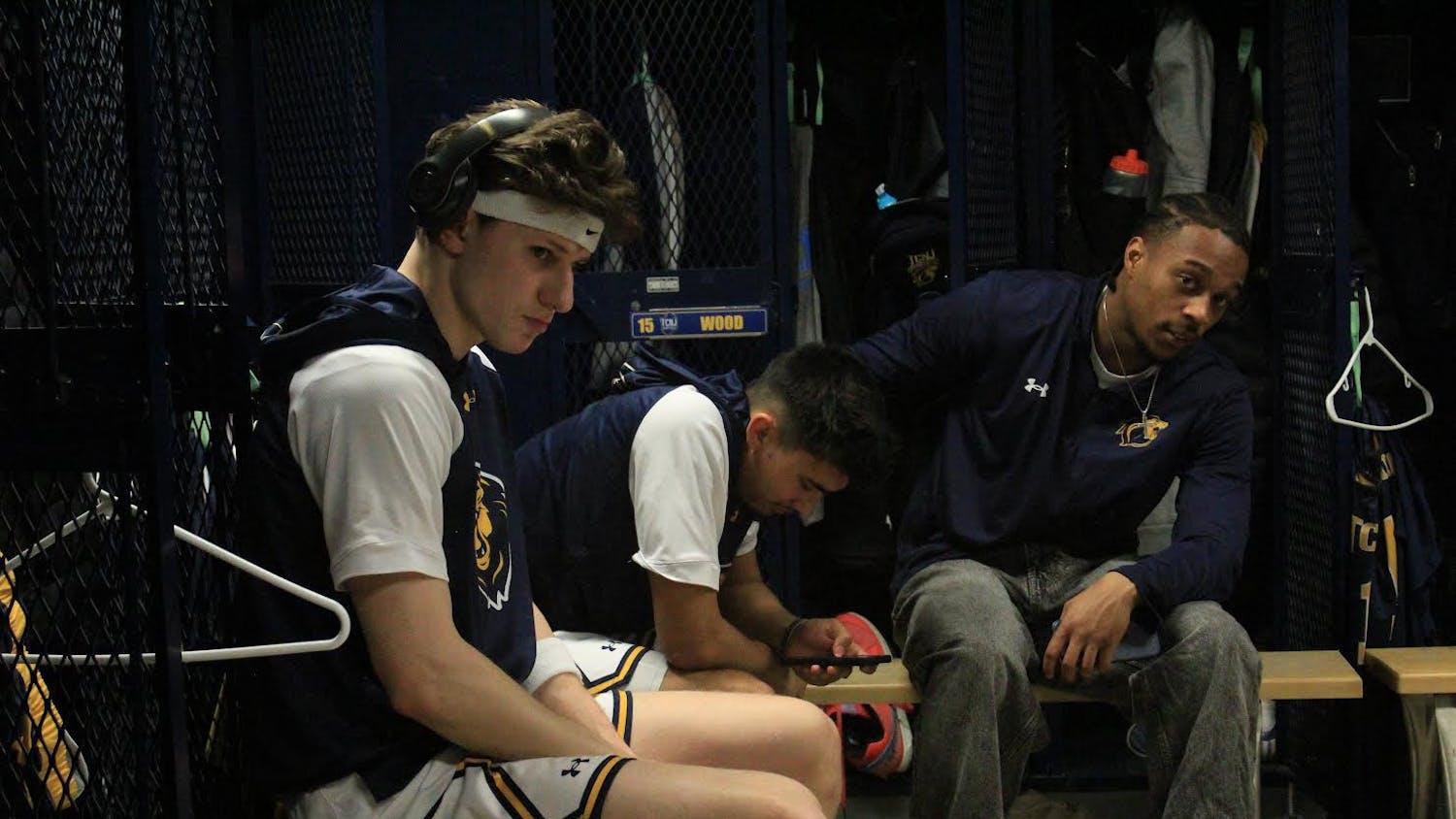By Mike Sherr and Matthew Kaufman
Editor-in-Chief and Managing Editor
Michael Bernstein was going to be a doctor.
Bernstein’s father was a physician, and the pair thought that the doctor’s son might practice with him and become his protege. That did not happen, and Bernstein is now settling into his role of interim president at the College. How did he get here?
The Signal sat down for an hour-long interview with Bernstein to learn more about him and his visions for the College. In the absence of a permanent president, Bernstein’s role will be to help set the College up for future success in this transitory period.
Bernstein was born on the Lower East Side in New York City and grew up on Long Island as his father started a medical practice. After graduating high school in Connecticut, he began college at Yale University and considered following in his father’s footsteps in medicine.
Bernstein soon realized that was not the path he wanted to take.
“I took all sorts of courses, but I started taking pre-med courses and it just wasn’t clicking for me,” Bernstein said. “My father was very supportive with that; he never expressed any disappointment.”
Bernstein’s course exploration eventually led him to an introductory economics course.
“[In] my first course in economics, I was infuriated,” Bernstein said. “One, because none of it made any sense to me, and two, because I didn’t do very well. I ended up majoring in economics because I just kept coming back for more. It really captivated me.”
As Bernstein’s undergraduate career was ending, he encountered a common uncertainty many students face: his plans for after graduation. After talking to an advisor about law school, public policy school or just entering the workforce, Bernstein’s mentor told him that he should go to graduate school for economics.
“I hadn’t really thought about it,” Bernstein admitted. “I started thinking about it and investigating programs, and here we are.”
During a brief tenure as a staff economist forecasting energy demand for the U.S. Department of Energy, Bernstein realized that government work was also not for him. He returned to graduate school and instead pursued a teaching career.
After graduating with a doctorate in economics in 1982, Bernstein started his first teaching position as an assistant professor of history and an associated faculty member for economics at Princeton University.
After being used to the colder weather of the northeast, he instantly fell in love with San Diego, thinking, “Why wasn’t I informed? This is beautiful!” Bernstein moved there in 1987 and became an assistant professor of history at the University of California, San Diego, where he met his wife, who worked as a budget officer.
“Much of what I know about college and university finances and budgeting, I learned from her,” Bernstein joked.
The couple has two daughters that live in Los Angeles.
Bernstein joined Tulane University in 2007 as vice president of academic affairs and provost to aid in the rebuilding effort after Hurricane Katrina. He returned to Long Island in 2016 to act as provost and later interim president of Stony Brook University.
After his tenure ended at Stony Brook, he returned to San Diego with his family. It was earlier this year when he heard about the opening of an interim presidency at the College.
“I knew a bit about the institution [and had] a very high regard for the institution,” Bernstein explained. “Suddenly here was this voice on the phone talking with me about a possibility of an interim presidency at TCNJ.”
As Bernstein learned more about the College’s needs–the College is notably facing much uncertainty related to its finances–he realized that his skills and experience would be a good fit for the institution.
He now spends his days meeting with different members of the campus community and is currently on a “listening tour” to learn about the needs of students, faculty and staff, and other community members.
“One of the very satisfying things about working in a job like this is that if someone comes to you with a problem, you can work to solve it,” Bernstein said.
When asked what advice he would give to undergraduates, Bernstein reflected on his own journey and simply encouraged students to pursue what they like.
“I get distressed when I see a student who's majoring in something that clearly they don't like and their record shows it,” Bernstein said, adding, “Whatever makes you passionate, that's what you need to do. The rest will take care of itself.”
The job of a college president can sometimes be difficult, overwhelming and full of long meetings, but Bernstein said that the students of the College keep him grounded.
“When I'm having a really bad day, or I'm really frustrated, or I'm unhappy, or I'm upset, [I] just take a walk on the campus and watch all of you,” Bernstein said. “[And I’m] reminded, ‘Oh yeah. That's why we're here and everything's going pretty well.”
Even though Bernstein did not grow up to be a physician like his father, he still identified an area that he was passionate about and pursued it, leading him–after an already-successful career–to his new office in Green Hall.







